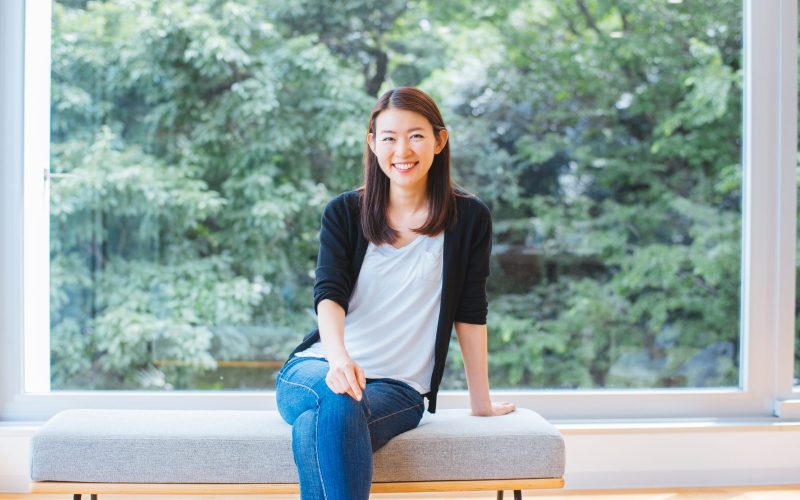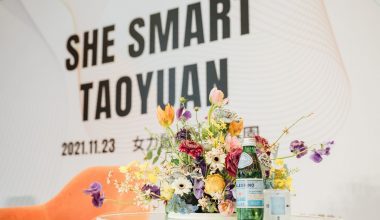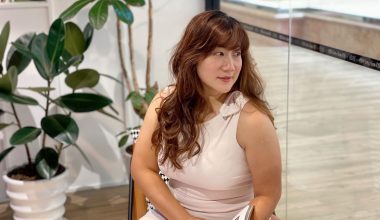Hello 大家好,即將到了年末,很多人開始思考要不要換工作的時候了。之前介紹過許多新興的求職平台,尤其對日本職場或是已經在日本工作的朋友,一定有聽過 Wantedly。 運用社群媒體的概念,先用比較 casual 的去探訪公司,看看在公司工作的人,再來決定要不要申請,有點像是先戀愛再結婚。成立至今,2016 年 Wantedly 有 2 萬間企業在上面招募人才,每個月有 100 萬的使用者。我們曾經訪問過創辦人 Akiko Naka,一年後我們再來跟 Akiko 聊聊她對未來職場的預測、日本職場的現況等問題!
編按:以下為英文逐字稿,有興趣的讀者可看中文翻譯逐字稿。
Tiffany: Hello Akiko!
Akiko: Hi! Thank you for your time today.
We’ve had several chats with you a year ago, both CAREhER & Wantedly focus heavily on what we called “millennial talents” and “future of work place”, lets talk more about whats going on in the work place in japan, specifically startups, internet companies and some interesting features that Wantedly is working on now.
Hi everyone. I’m Akiko from Tokyo. I’m really excited to be here.
Let us know what is the startup eco system like in Japan now. Cause we’ve seen a lot of millennial talents and maybe there’s new career path that is very different from before, its the same in Taiwan, too. Before the last generation they aim for going to Fortune 500 cooperations instead of startups or internet companies. Do you see a change in Japan society of there career preferences and what do you think its heading to for the next three years?
Right, so the mindset of the young people who are educated in really good schools are changing, so maybe like ten years ago, going to internet industry, getting job in company that in the internet industry was kinda shady, you weren’t that really proud if it, you can’t really tell that to your parent or peers, because internet industry was still growing, but now more and more successful stories are out and people know that internet company pays well wage and people have more freedom, and have more ownership, I think its becoming more and more popular place to work for.
What is the internet company like in Tokyo right now? We also know there’s slightly different that theres a lot of mega ventures.
Exactly, there are three major startup trends, like huge waves of startup trend, there were like three times in the past. So first one happened back in late 90s, when companies like CyberAgent & Rakuten (樂天) went public, and another wave came sometime during 2010, thats when companies like DeNA, Gree those companies went public. So those first wave companies they are like mega ventures now, some of the companies have even larger profitability revenue than traditional Japanese companies. Those are not really considered as ventures anymore. And the second wave of the companies DeNA & Gree are now probably around like 5,6 billion US dollar worth of valuations. They have really good balance of risk and return, so people new graded form college can have a really good high salary and have ownership at the same time, so you can enjoy both upside being in a startup, and also in a large corporation . so just like maybe work in Google or Facebook.
Basically if you’re looking for a company that is structured and more secured but also have the fun creative culture. the second wave, these companies are still something like that.
Exactly, and the third wave which we are in now, the companies were found three or four years ago. Now they’re becoming around the size maybe like a hundred or two three hundreds of people, and some of them are going public and as our generation of start-ups still not that large and not stable yet, but obviously have more upside and could be really challenging, we are also attracting lots of young people and very talented, highly educated people are applying for our new grades job applications, so its really good time i think.
Can you give us some examples of the third wave companies, like there is Wantedly and what are some other Japanese start-ups?
I would say Mercari, Freee, MoneyForward …..
And you can find them all on Wantedly. Also we focus a lot on cross broader career opportunities, we pride ourselves as millennials talents in Asia, the voice of them. so can you tell us some traits or personalities of millennials in Japan, what do they value the most? what do they look for when they are looking for jobs?
So there was an interesting survey, it carried out in the past, and it shows Japanese people care about relationship at work more than other young people in other countries. and the relationship matters more than salaries, so people tend to switch jobs, cause they don’t really get alone with their colleagues or boss, so thats what i think is the uniqueness of Japanese people.
Talking about work relationship, there’s a lot of unspoken culture etiquette thats is very unique in Japan, and its a very high culture barrier for foreign talents, even for Taiwanese, we kind of share very similar values and we read 漢字, too. but its still something that it deters foreign talent to go to Japan. Is that something that is changing in the Start-up in Japan? Because its so much newer, so much more creative.
I think the biggest barrier for foreign people to work in Japan is English, cause a lot of Japanese people don‘t simply speak English, and you can just live your whole life without being able to speak English, so thats changing. Lots of younger generation have experience studying abroad and have more interesting studying in English, have more experience or chance of speaking English. So I think obviously more and more younger people are comfortable speaking English at their workplaces, and that environment is much more relax.
Also another thing is back in 1980s or 1970s, when Japanese economics was really blooming, I think my parents or grandparents generations were like working so hard, and really after WW2 when Japan lost were like you know city was burned to ashes, people worked so hard, theres was a saying said “can you fight for like 24/7”
There’s a term Karōshi (過労死)- it means working to death.
After there was a social issue back in 1970s, lots of people died because work, I think our generation like millennials in Japan more relax, and because like more advanced technology and more information coming, i think our generation more care about like productivity, all the generation of people they just had to stay in office for long hours to show like the respect, even they are not doing anything they just sit down.
Let me ask you, can your team leave work earlier than you?
Yeah definitely! There’s another reason like I’m pretty much staying in my room for like all day, i want to make sure people don’t really need to care about what I’m thinking. if they don’t see me, they probably feel more comfortable leaving when they are done with their job. We care about process but I think end of the day what matters is what you deliver as the result.
Is work-life balance also getting big in Japan society?
Yeah definitely, and because population is aging so fast, and we have children, Japanese government is trying to utilize more women work force, to do that, cause women have to deal with the child raising and giving birth, so they have to be more balance, thats becoming more like a main stream, I think its a good news for foreigner people, cause foreigner people don’t really wanna work to death.
Exactly, they are in Japan for fun not for work.
Can you give us a average working hour within the internet startup industry in Japan?
Still like a small startup, people work really hard, i mean that probably goes the same with startups in other countries, like people in the US, so if you are like a really small startup like series A,B, definitely work on weekends, probably like 9 to 12?
But then I come with another more important thing which is the purpose, the reason why you are working, the purpose and the impact they are making, too.
Agree. So our service, Wantedly, we provide job matching between user and companies, mostly based in passion, mission and values rather than salary and benefits. I think one of the reason why its working so well in Japan is because younger generation, millennials they care about money as well, but at the same time, they don’t just wanna work for money, they want to have meaning and cause in what they are doing. So it really matters a lot for Japanese young millennials.
You also mentioned that Wantedly pairs jobs based on missions and values, recently I have noticed you’ve added many interesting features such as sync and tools. What are they for and why did you add them?
So our mission is to make creative world where work is passion. to do so, we aiming after large number users, which is more than 10 million users, currently our MAU is 1 million so we are hoping we can provide more functions and values people can use daily rather than just once in a while. right now Wantedly’s core user experience is more like job matching, if you find a really dream job, which they grow up and stop using Wantedly, so we wanna provide more new features so people can come back use more.
And going back to the question, so one of the feature we launched this year “sync” which is like a chat application like slack, and I think one of the biggest shift that we are facing now, people are more usually changing the organization they belong to, like changing companies or work places. And people are more mobilize its more easy for people to change countries where they are living as well, so I think its very important to utilize your network, because you are gonna belong to any certain place, organization for a long time so more network you have, the more network to utilize, and the more productive you can come, and you can create some bigger value.
Especially I have heard that Facebook and LinkedIn is not huge in Japan. so basically you guys are dominating this part of the new millennials work force, their connections and networks.
Exactly, yeah hopefully. We are providing this figure where people can getting more and more connected. Like you said LinkedIn is for business purposes but LinkedIn is not big in Japan, Facebook is good but Facebook is for nurturing your friendship and not really for business so thats why we are coming to connect people and to utilize network to build great stuff that really changes the world.
You guys are position in a very sweet spot, its more casual than LinkedIn but its more serious than Facebook.
Exactly, so probably we can discover a service like a LinkedIn for millennials.
Last question is for fellow entrepreneurs, Wantedly has grown up from a very small startup to a platform of like you said theres a million users per month, but there’s always a balance between scaling and you want to continuously refine your product, and focus on your product. What is your advice to that?
I think it goes for all the product, but if there are like more and more programmers and designers involved in the product, its easy to add more and more features and more features you add, more complicated the product will become without realizing, so if you keep adding and adding, at the end of the day, user will start being confused, because when you have so many options you have to think so much to think about how to use, stuff like that, so our engineering team, we have this policy we are following, we are trying to keep things simple so we have this phrase “Simple is not easy.” that everyone remembers, and by following that we are trying to keep things as simple as possible.
For example, our PC websites version, there is one of the functions that is rolling out, each different team are pursuing their different KPI which are like MAU or page of views, so everyone wants to put link on header or whether they want to have visibility to users, but if you allow that there will be so many links, and at the end of the day users would be like so confused, you probably can not tell which one to click, so we had this intense discussion every once in a while like maybe every quarter to delete or eliminate numbers of links, we try to keep it as minimum as possible, although its very hard cause there are something like so many stakeholders in the company and everyone wants to have exposure to top page.
Again, you really have to work very hard to maintain the simpleness of the website or apps, which is really hard, I think it really matters.
Simplicity definitely matters. Thank you Akiko for updating us for whats going on in Japan, and also sharing with us that how millennials are behaving and also for people that are interested in going to internet companies or startups in Japan, what type of companies to look for. We hope we can talk to you soon for another topic, thank you!
Thank you for having me. Bye!
Our Podcasts
Dialogues to lead discussions that matter to today’s women: Career, wellness, relationships, innovation and latest trends. 20 mins per episode of original authentic content.
每集20分鐘的「她與她」音頻,我們討論職涯規劃、人生關係、身心靈的健康和平衡、科技、新創以及新世代工作女性在乎的議題。








